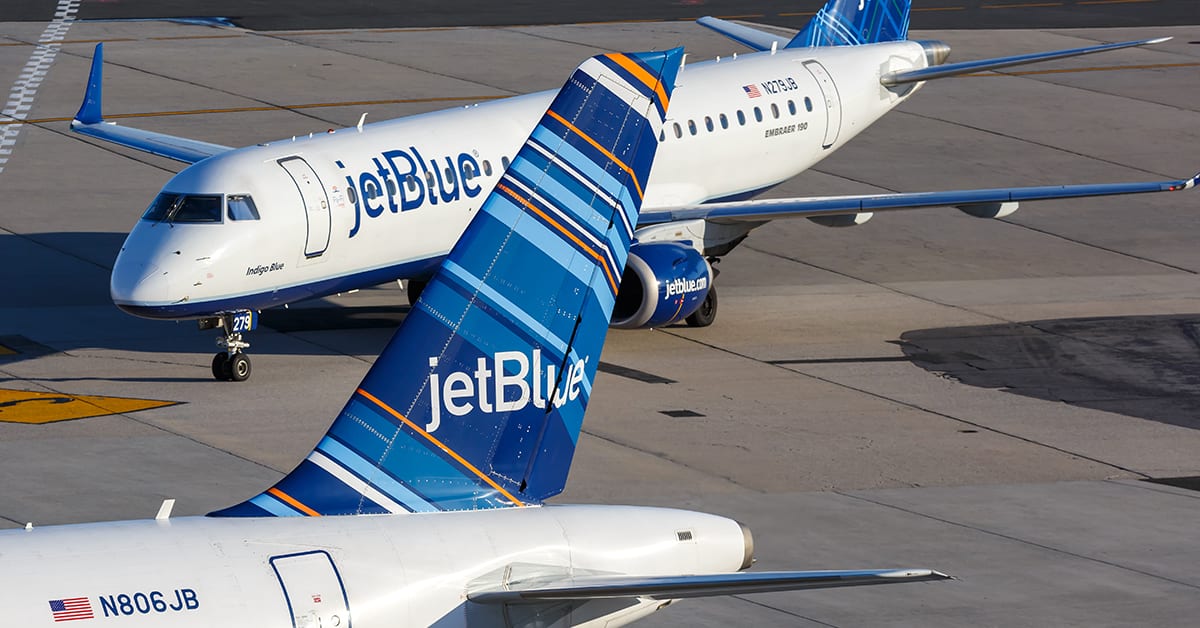M&A activity shakes up the American airline industry.

Low-cost airline JetBlue has its eyes on ultralow-cost carrier Spirit Airlines, which is already in merger talks with another budget carrier, Frontier Airlines.
After its $3.6 billion friendly offer was rejected by Spirit in May, JetBlue launched a hostile, all-cash takeover bid—at a lower price. The tender now stands at $3.3 billion, or $30 per share, versus $33 per share previously. The bid is fully financed and comes with a $200 million reverse breakup fee.
The merger could create savings of about $700 million for the new company, which would serve 77 million customers a year with about 1,700 flights a day. Incorporating Spirit’s aircraft fleet and trained pilots would allow JetBlue to become the fifth-biggest US airline, behind the “Big Four”—American, Delta, United and Southwest—that together control about 80% of the US market.
In February, Denver-based Frontier offered Spirit $2.9 billion in cash and shares, or $21.66 per share, for a peer-to-peer tie-up that both airlines pledge would save customers $1 billion a year. Spirit shareholders will vote on June 10; Spirit’s board has urged them to accept Frontier’s offer and reject JetBlue’s unsolicited bid.
A JetBlue or Frontier deal would both be subject to strict antitrust scrutiny. However, according to industry analysts, merging Spirit with Frontier would have more benefits for customers and less overlap in terms of routes and regional markets.
“The overwhelming and prevailing sentiment is that JetBlue’s motivation is more about disrupting the Spirit-Frontier deal than getting the Spirit deal across the finish line,” comments Diane Alter, M&A and antitrust specialist at DealReporter.
Regulators might look unfavorably at a deal with New York–based JetBlue, whose partnership with American Airlines in the Northeast is already being probed by the Department of Justice. Integrating JetBlue with Spirit might eliminate one of the cheapest low-cost airlines in North America, further diminishing competition.
“The move to a tender, which began on May 16 and runs through June 30, still needs regulatory approval,” Alter notes. “Getting the DOJ’s nod on a hostile offer is remote, at best.”



